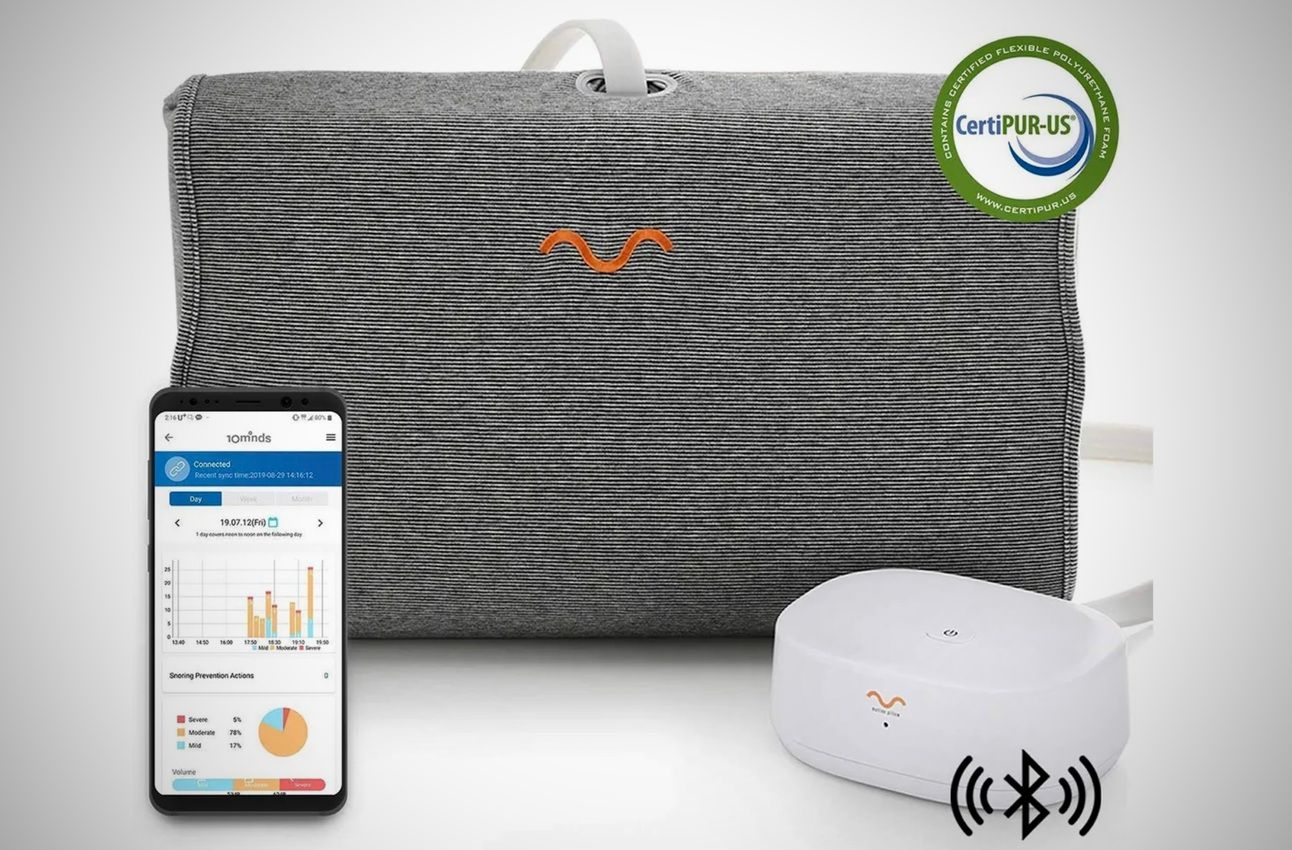- Here.Now.AI.
- Posts
- AI Travel Made Simple
AI Travel Made Simple
Plus: Interactive AI Podcasts & pillow power
Internet search as we know it is changing fast, thanks to AI. Matt Honan at MIT Technology Review calls it “the biggest change to the way search engines have delivered information to us since the 1990s.”
No more keywords. No more links to click—just straight answers. Convenient? Absolutely. But it raises an interesting question: what do we lose when we bypass the process of discovery? Or as Matt puts it, who wants to have to learn when you can just know?
We’re still grappling with what to make of it all, but we highly recommend checking out the article — it’s worth the read.
In this week’s edition, we’ve got the latest on Google’s amazing NotebookLM, AI-powered hotel picks, fighting health claim denials with AI, and a smart solution to snoring.
Let’s get started!

Credit: Pixabay
AI Learning
Have you tried Google’s NotebookLM yet? We’re big fans of the AI research assistant that transforms complex content into engaging, podcast-like formats. Well, it just got even more impressive with a feature pushing the boundaries of how we interact with information.
Quick Refresh: NotebookLM helps you digest research materials – from web links to documents to PDFs – in whatever format works best for your learning style (briefing doc, study guide, FAQ, etc.). It’s free to use and one of its standout features has been the ability to create conversational content where two lifelike voices break down complex topics (like this example on the US Constitution) into digestible discussions.
Google has just unveiled an innovative "interactive mode" that allows you to raise your hand during a fascinating presentation to ask questions or share observations. With a simple button press, you can jump into the conversation, and the podcast hosts respond to you in real-time, maintaining the natural flow of discussion.
How it works:
Create a notebook with your research materials
Select the “audio overview” button
Hit "interactive mode” during the podcast to join the conversation
Ask questions or share insights at any point
You can read this review to better understand the interactive mode. Having trouble getting started? Email us, and our team will help guide you through the setup process. We'd love to hear about your experience with this groundbreaking technology.
From our Sponsor
You’re Doing Breakfast Wrong
Discover Huel Black Edition—complete nutrition without compromise.
With 40g of protein and 27 essential vitamins, it’s the perfect meal for your busy life. Whether at home or on the go, fuel up in seconds with a high-protein meal.
Even better? New customers get a bundle of savings to kickstart their Huel journey. Use code BEHUEL15 for 15% off your first order, plus a FREE t-shirt and shaker.

Credit: Pixabay
AI Search
Planning spring or summer travel but unsure where to stay? Finding the right hotel can feel like a maze of online reviews, ratings, and conflicting website recommendations. Perplexity, the AI "answer engine," has teamed up with Tripadvisor to simplify your search, offering tailored suggestions backed by trusted data.
Now, you can access real-time reviews, ratings, photos, and key details like cleanliness and service. Other key features include:
Personalized insights: Get clear, concise reasons why each hotel fits your travel plans.
Expanded options ahead: Soon, you’ll see restaurants and activities alongside hotel recommendations.
Cross-platform availability: Live on the web now, with mobile updates rolling out soon.
Search “moderately priced hotels in Copenhagen for a summer getaway,” and Perplexity delivers more than a list. It might suggest hotels based on their central location, exceptional service, and breakfasts worth waking up for—all sourced from Tripadvisor’s extensive database. With data spanning 43 global markets, support for 22 languages, and over 11 million business listings, Tripadvisor’s resources amplify Perplexity’s chatbot-style engine.
AI search engines are in a heated race to redefine how we plan travel. ChatGPT recently rolled out real-time search features and the competition is fierce. But for travelers, this means smarter, faster decisions just in time for those spring and summer trips.

Credit: Pixabay
AI & Health Insurance
Earlier this week, healthcare payments company Waystar unveiled a new AI tool to help hospitals tackle costly insurance denials, which drain $20 billion annually from health systems. The tool, called AltitudeCreate, automates the drafting of appeal letters for providers, freeing them to focus on patient care instead of paperwork.
We discovered a free site, Fight Health Insurance (FHI), that uses AI to empower patients to fight denied health insurance claims. Its quirky slogan, “Make your health insurance company cry too,” underscores its mission to level the playing field.
FHI is the brainchild of Netflix software engineer Holden Karau who combined her experiences at IBM, Apple, and Google with her personal success in overturning claim denials to build an AI that generates effective appeal letters.
How it works:
Upload your denial letter: The tool scans the document.
AI-generated appeal: The platform drafts a custom appeal letter, which users can review and edit.
While similar to using a general-purpose chatbot like ChatGPT, FHI’s AI is optimized specifically for insurance appeals, making it a targeted solution for a frustrating process.
Claim denials have taken center stage in national conversations following the tragic December shooting of UnitedHealthcare CEO Brian Thompson. As awareness of tools like FHI grows, more patients may start appealing denied claims and finally getting coverage for the care they desperately need.

Credit: Motion Pillow
AI & Sleep
Snoring doesn’t just disrupt sleep—it can strain relationships and harm your health. Millions wrestle with loud snoring, relying on nasal strips, mouthguards, or even surgery. Now, an AI-powered pillow offers a smarter, more comfortable way to enjoy restful nights.
How it works:
The AI Motion Pillow delivers a three-part solution: a bedside AI hub, the pillow itself, and a companion app. Here’s the breakdown:
AI-powered detection: The Motion System uses advanced technology to distinguish snores from background noises (like a passing train), ensuring it activates only when necessary.
Gentle intervention: When snoring begins, air bags inside the pillow slowly and quietly inflate, gently repositioning the sleeper’s head to open airways and reduce snoring.
Customizable comfort: Users can adjust the inflation height to match their build and sleeping preferences for an optimal experience.
The companion app, available on iOS and Android, enhances the experience with features like snoring reports that track how long you’ve snored and how often the pillow was activated. Curious about what’s disturbing your partner? The app also records and plays back your snoring sounds for deeper insights.
The AI Motion Pillow is a CES Innovation Award honoree for the fifth consecutive year, celebrated for its innovative approach to a widespread issue. And it works—clinical tests show that 94% of users snored less while using the pillow. With few effective, non-invasive solutions available, this data is a big win for snorers and their partners.
At $399, the AI Motion Pillow is a significant investment. Without a trial period, buyers must commit upfront, making it a pricey gamble for a peaceful night’s sleep.
AI in the News (in case you missed it)
Biden signs executive order that seeks to grow US AI infrastructure. Read here.
AI is already changing the ways we fight cancer. Read here.
Identifying misinformation, fake images about the California wildfires. Watch here.
Stanford scientist discovers AI has developed an uncanny human-like ability. Read here.
Did you receive this from a friend, colleague, or family member? Please subscribe.
Have you tried a new AI-powered product? Let us know what you think.
Know anyone who might like our newsletter? Recommend it, and help grow our community!
Here.Now.AI Editorial team: Lori, Justin, and Lisa

